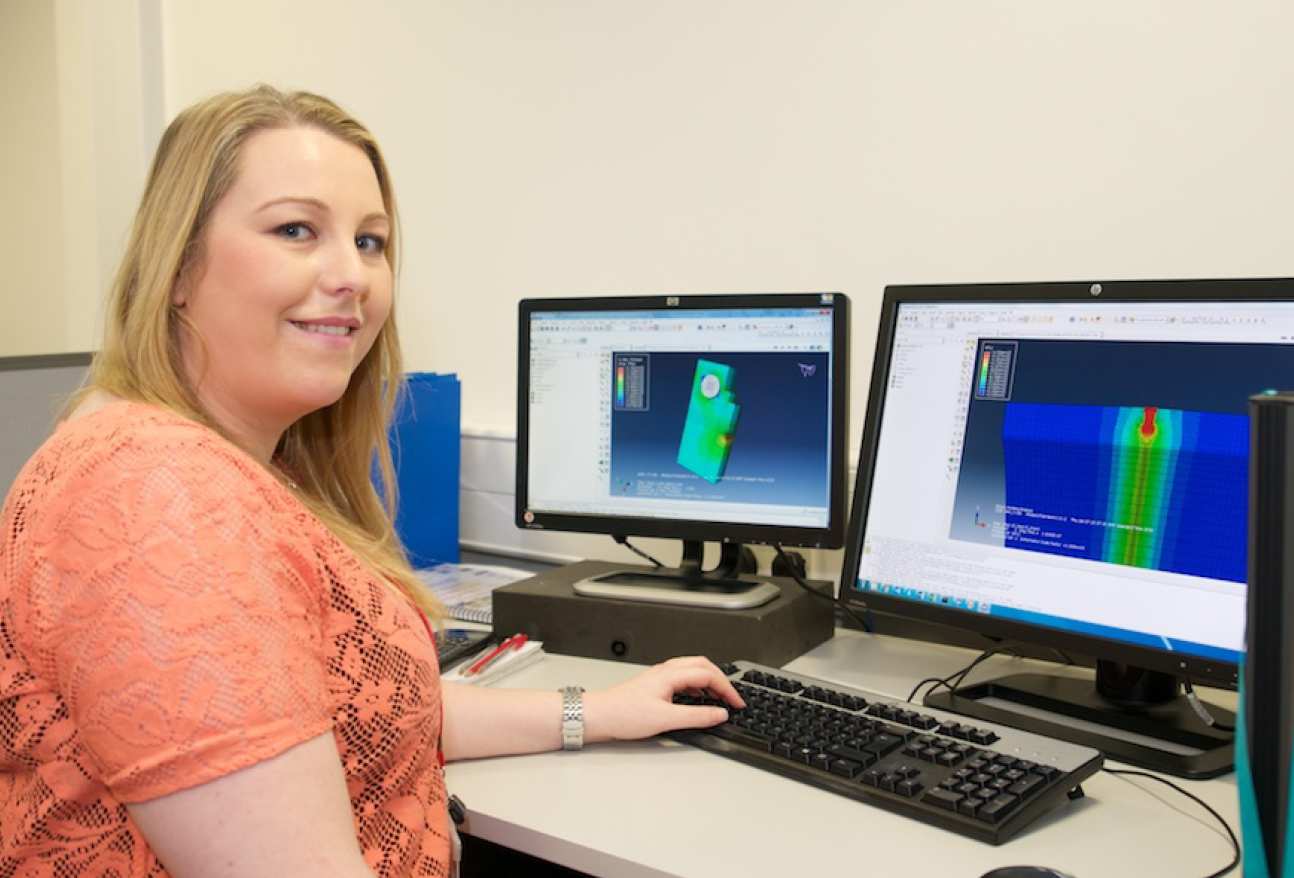Alison is doing her PhD in the Mechanics of Materials Division.
"There are lots of opportunities for cross-collaboration which make Imperial a really exciting environment."

When did you decide to do a PhD and why?
Whilst I was doing my undergraduate degree I had thought about doing a PhD but in the end, I decided to go straight into industry after my masters. I first worked at the European Space Agency, on their ‘Young Graduate Trainee’ programme. I then joined TWI, an engineering consultancy company for four years.
However, I had really enjoyed doing my undergraduate thesis which is what originally made me realise that I loved doing research. When I was in industry, I thought a PhD could only really be an advantage in the future. I decided that it was something I wanted to do for myself as well, and so it became a case of looking for the right opportunity for me. That process can be quite difficult and take a long time!
Can you describe your experiences studying a PhD here?
It’s really been a very ‘mixed bag’ so far. Initially I found it quite hard to transition from industry to a PhD, as the structure in the working day is very different. On the other hand, I’m now based in an office with people who do similar, but the not same, work as me. I also really appreciate the activities run by the Mechanics of Materials Division – for example, divisional seminars which gives insight into what others not in your field are working on. This means there are lots of opportunities for cross-collaboration which make Imperial a really exciting environment.
Additionally I get lots of opportunities for interaction with industry through my PhD. This is great as it’s essential to have contacts in industry, whether you eventually follow an academic career path or not.
What is your PhD research about?
My PhD project is about the structural integrity of the pressure vessels in nuclear reactors. I am looking at the defects which can develop in the steel cladding of pressure vessels in nuclear reactors, and trying to understand what happens to these defects whilst the pressure vessel is in service. One of the aims of the project is improving industrial standards and specifications.
Although my research is directly related to the nuclear industry, it will also have relevance for industries such as oil & gas, power, and petrochemical.
What would you say about the supervision you receive?
Both my supervisors are great and very supportive, in different ways. I find they are both very proactive in suggesting opportunities for my personal development, for example by suggesting courses/seminars/conferences for me to go on. Overall, it’s a very supportive environment here – there are always colleagues and peers who are willing to listen to new ideas, and challenge your way of thinking.
What has been the best thing so far about your experience of coming to study for your PhD here?
A highlight for me so far has been going to ISIS, which is a world-leading centre for research in the STFC Rutherford Appleton Laboratory, in Oxfordshire. I was actually tagging along to a colleague’s visit, both for interest and to help, and to investigate if the facility might be useful for my project in the future.
What do you think about living in London?
Imperial’s London location was a major draw for me when I was choosing where I might like to study. London’s a great place to live and there’s so many cinemas, markets, and other things going on, that you’ll never be bored. I think the College’s sports centre is great - when I’m not studying, I like to do aerobics classes and they have a good selection there.
Do you have any thoughts about where you might like to go in the future?
I’m not sure yet. I had originally thought after my PhD I would want to go back to industry, but we’ll see. Perhaps a role at the interface between industry and academia would be appealing!
What advice would you offer to students considering applying for a PhD at Imperial?
Don’t compromise on your topic or supervisor. Doing a PhD is a long process and there will be very tough days, or even weeks. You need to study something you really love so you have the motivation to keep going. Keep in mind that your supervisor will have a big impact on your future for the next three-five years. My advice would be to choose a supervisor who has proven ability in your field but is also someone you feel comfortable having a personal conversation with as they will also be an important support mechanism for you.